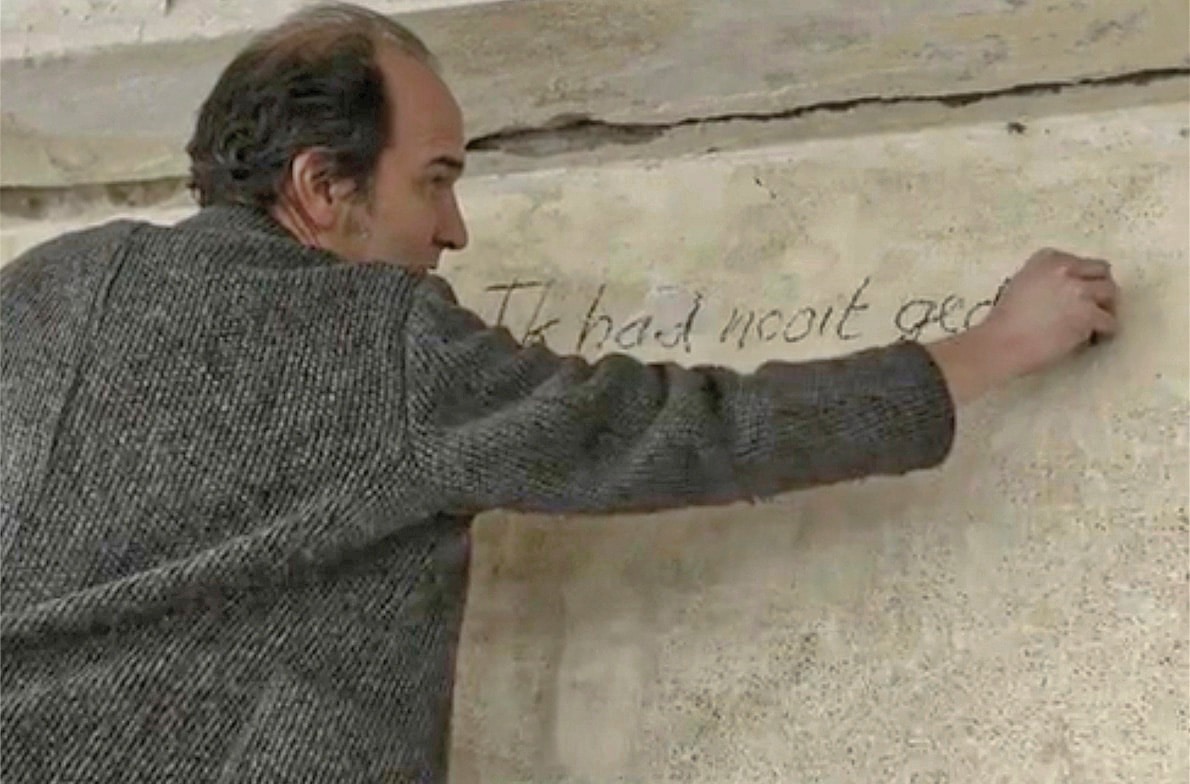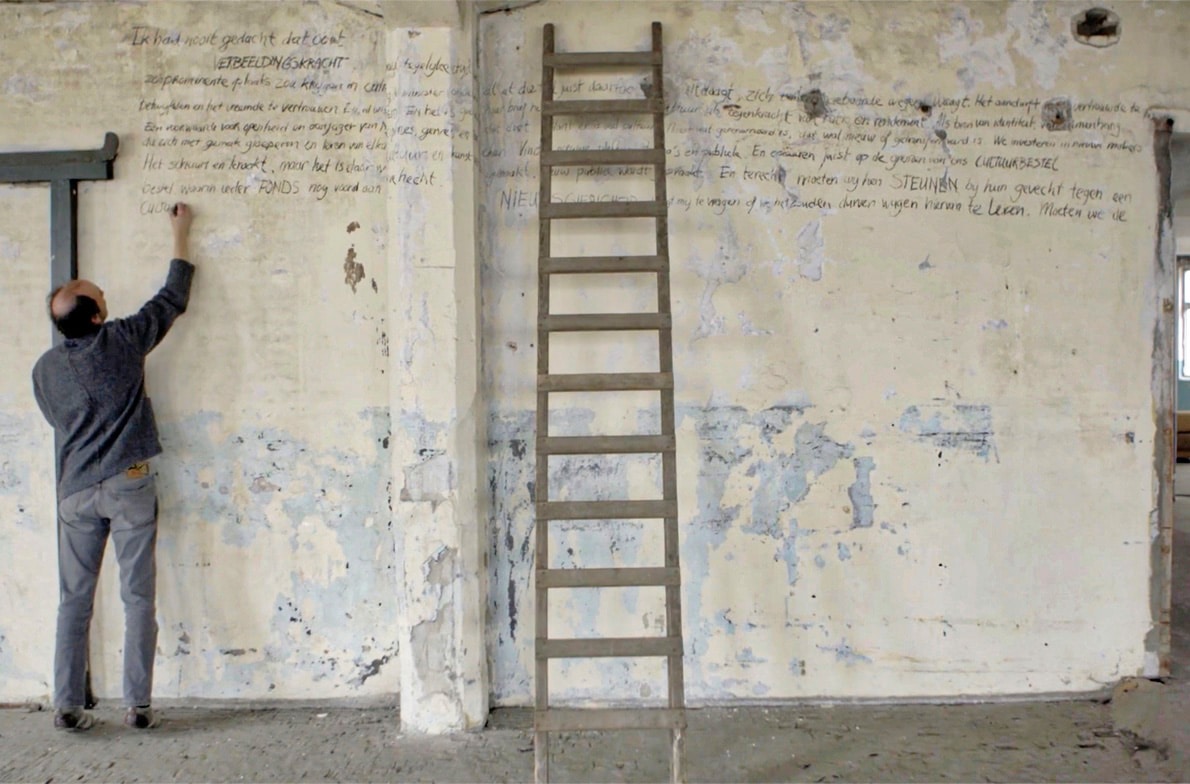The trigger for this story is that relatively recently, the Council for Culture published its sector foresight. The summary opens with the words that 'Culture moves'. A rather euphemistic statement in my view. In this case, it means that the making, spreading and experiencing of culture is constantly changing. The Council's second very obvious observation in the same introduction is that culture and the creators of culture can no longer be captured in boxes or genres. Something that, according to the Culture Council, should encourage the central government to reconsider how support for art and culture should be organised differently.
Wishful thinking?
Then, in the same summary, it continues in a formulation that almost makes you think everything has become one and the same. Is it really the case that any distinction has fallen away? Is it tunnel vision or wishful thinking? Such a text saddens me. I find it hard to accept that a 'fait accompli' here as 'new insight' is written down. Nowhere is it noted that it became this way, out of sheer poverty and survival instinct.
After all, after the interventions in Halbe Zijlstra's period, the past few years have been marked by the demolition and disappearance of facilities. If the specific facilities that you as a cultural maker need for your specialism have been cut back, there is little point in continuing to appeal to that specialism in which you as a maker have put your heart and soul for years. That only makes it less likely that you will keep it up. So you take your loss and go back to work with less.
Next, the Council for Culture tells which facilities do require public investment again and how that might come about. Then things get interesting, the Culture Council makes a new discovery.
Urban cultural regions
In the second part of the sector opinion on the future of cultural policy, the Council focuses on exploring new relationships between the state and the 'urban cultural regions'. The council will look for a new alignment and joint formulation of good framework conditions for the cultural sector. In doing so, the 'urban cultural regions' a key role in our cultural system.
The urban culture region, according to the council, is the new 'ecosystem' in which creators, cultural institutions and governments can work closely together to respond to the specific composition and needs of the population. For instance, to the identity and stories from the region. On the infrastructure and distinctive local characteristics present there. The individuality of municipalities and provinces, contributing to the quality of life and solidarity in neighbourhoods and, of course, the business climate: 'Culture goes local'.
A listing of almost purely instrumental values of arts and culture. Instrumental values that can thus be converted back to economic and can be accurately captured in euros. In short: a new role for urban regions.
Bustling Optimism
Given this effervescent optimism from the Culture Council, I thought it would be a good idea to get right down to business with the 'stakeholders' from my own region (Province of North Brabant). As it goes then, with the municipal elections coming up, the opportunities for urban culture were talked about here and there with a roaring drum. But because of those same elections, I had to park the position of the 'urban culture councillors' for a while. The things they enthusiastically reported on before the elections are now for a while 'on-hold'. Only when the dust has settled somewhat and the new colleges and aldermen have been appointed will opportunities open up to make enquiries there. Questioning them about their new plans for urban arts and culture.
There is also an important role for provinces is described in the Council for Culture's exploration. For this series, therefore, my first step is the interview I recently had with the deputy for culture of the province of North Brabant Henri Swinkels (SP).
Attractive
Henri Swinkels was pleased with my interest, kind enough to reserve a spot in his diary for an interview and explain his policy approach. Art and culture is an important area of focus for urban regions, including in Brabant. Often not for an autonomous motive, but mainly because many local politicians see an instrumental need for commitment to stronger arts and culture policies. In other words, 'the attractiveness of the business climate', which is the economic motive par excellence.
So a first serious question is: What will future policy look like?
Swinkels: "The advice of the Council for Culture is important because an opportunity to achieve a new alignment with the national government has presented itself. Until now, the national government has mainly been about production and municipalities about local infrastructure. I argue that we can also use influence at regional and local level to link production to facilities. That, for instance, we don't first let an ensemble with national resources focus on a national production, which is then later offered here locally. I like to see that this movement can also come about in reverse. Of course, I cannot sit in the municipalities' chair. But I can point out, even now with the new municipal councils, that the province explicitly recognises the importance of arts and culture."
Economic values
Swinkels says that in the current times, it is of course the case that in cultural policy almost everything is caught in motivations that can be traced back to economic aspects. He regrets this, but realises that in this day and age, these are weighty reasons for policy efforts. Also among municipalities in Brabant.
The province has an organising role and can only try to increase support for the policy commitment to arts and culture. He also sees a role to develop more focus on arts and culture in education. Personally, he is therefore pleased with the result that 47 municipalities in the province of North Brabant have agreed to an extra financial injection for cultural education. Cultural education is now offered at a higher level in these municipalities. While otherwise cultural education might have disappeared completely from the school curriculum.
Cultural Ecosystem
In its recent sector opinion, the Council of Culture also called for a stronger role for the 'regions'. After all, according to that council, urban regions are decisive for what they describe as a 'cultural ecosystem' urban cultural climate.
How does the deputy see this for the Brabantstad urban region, where a joint cultural vision is currently being worked on?
"Policy visions and advice naturally focus a lot on instrumental motives for arts and culture. How can art and culture still be valued or judged on its own strengths and merits? Discussions about this are often endless, although I am convinced that the value is there. You can easily establish for yourself that you enjoy something and whether you feel pleasant or touched by it. On a positive note, I think the current minister mentions the word 'imagination' again in her letter. I find this so hopeful that I immediately responded to it personally as well."
Check out Henri Swinkels' striking reaction: The Culture Letter.

Homogeneous
Brabantstad is not homogeneous, even though we are working on a common cultural vision in Brabantstad ('s-Hertogenbosch, Eindhoven, Helmond, Tilburg, Breda and the province). According to Swinkels, there are strong distinctive aspects between these cities, including culturally. Each city naturally wants to be able to offer the whole package of culture as broadly as possible. How does he see opportunities for interconnection in this anyway?
How can policy from the province of North Brabant respond to this, also in the light of the vision of the Council for Culture?
"I admit it is not an easy task. Based on good research, however, it should be possible to make more fundamental choices. Thereby mutually opting for more diversity. As deputy I can, however, try to encourage cities to speak out for more clear choices. Choices that also fit better."
Maker's Fund
"From the province, for example, we encourage the offering of a 'Maker's Fund scheme'. That is a good starting point to support and strengthen what comes about at a local level. Then the local breeding ground also works through in what is developed in that particular municipality."
Also with the provincial 'Impulse Fund Scheme', the province wants to strengthen local initiatives and develop additional opportunities from that local structure. Impulse funds aim to give culture makers and institutions in Brabant exactly what the word says. An incentive to reinforce their activities or work and to better perpetuate them in business terms. An Impulse Fund subsidy can be granted for a longer period of 1 to 3 years.
Local focus
Municipal elections show that local parties are gaining momentum, including in Brabant. A growing local focus. How does this reflect in the ambition to develop a joint cultural vision for Brabant City?
What does Swinkels think is needed in Brabant to strengthen arts and culture and which way should it go?
"Thanks to that possible local focus, a Maker's Fund in particular is a tool to provide talent support on a local level. In the end, everyone is proud when a local talent breaks through more widely. It remains important to recognise the usefulness and necessity of arts and culture. Ultimately, municipalities reap the benefits in the sense we discussed earlier. But in Brabant, we now have good opportunities to achieve much better coordination. Not only among ourselves, but also between the province, municipalities and the state.
The timeframe is clear. We have to wait and see what exactly comes of it, but if we manage to offer a sharp common cultural vision to the minister, we can strengthen each other and take a big step forward."
Finally, what would the commissioner like to note, or pass along in response to this conversation?
"Unlike in the state, here we already don't work in a 'disciplinary' way, or don't pigeonhole everything. We look across the cultural field. For example, in the role of Brabant-C, we are always improving and matching with other parties as well, outside the established circuits. Of course, we continue to do work. Time demands that of us too, to keep moving along."

Personal information
Henri Swinkels is deputy commissioner for liveability and culture of the province of North Brabant. Henri Swinkels (1963) was born in Vught, where he still lives today. He graduated from Utrecht University in 1987 as an evolutionary biologist. During his military service, he joined the Association of Conscript Military Personnel (VVDM). It was his introduction to trade union work that subsequently defined much of his career. First as an educator/trainer at the training institute of the FNV, then almost 15 years as training coordinator for the Dutch Police Federation. From January 2014, Henri swapped the trade union movement for the SP's Lower House faction where he became faction member for Social Affairs and Employment. In spring 2014, he was briefly a member of the Lower House replacing Renske Leijten due to maternity leave.
